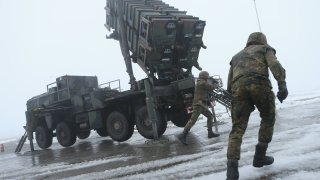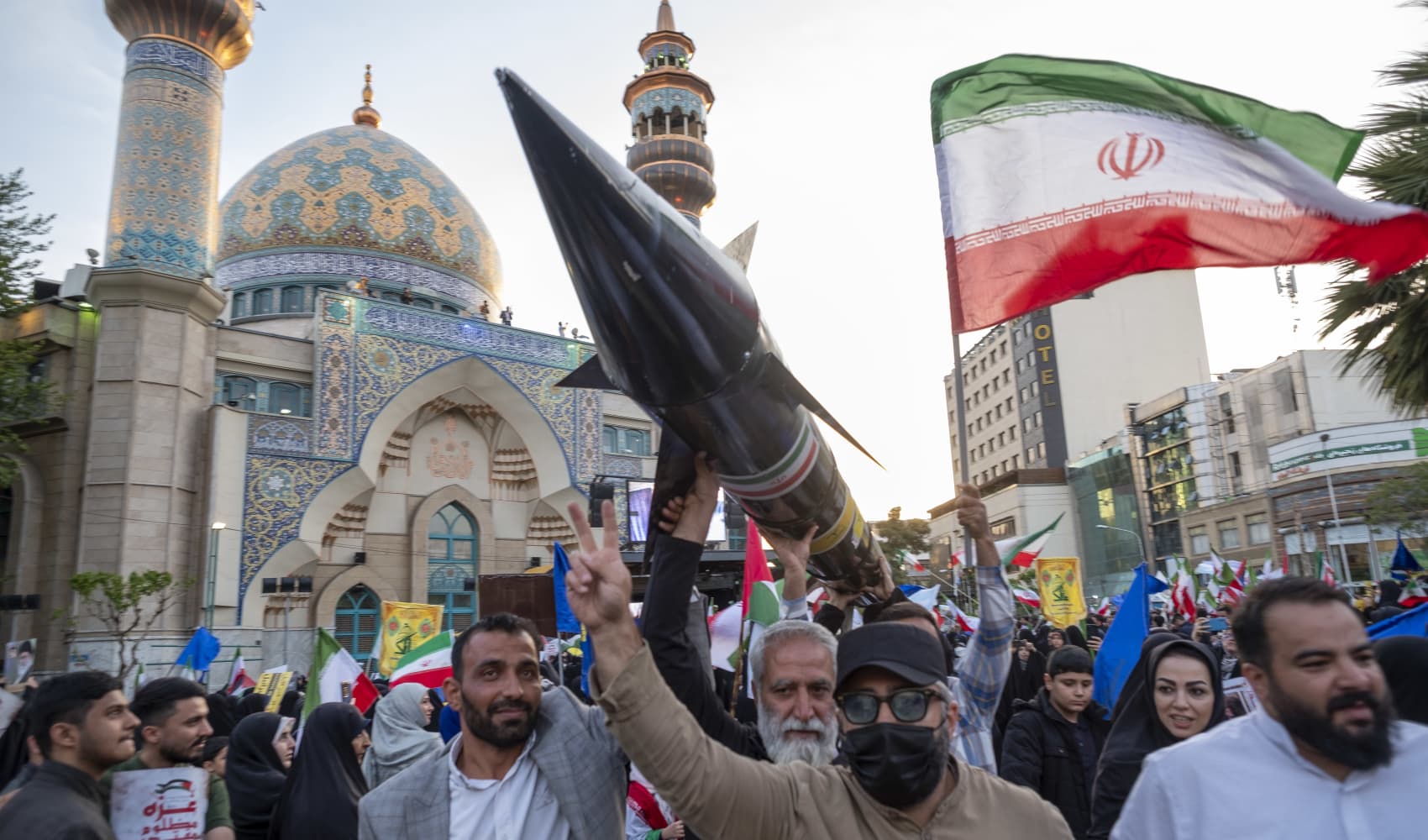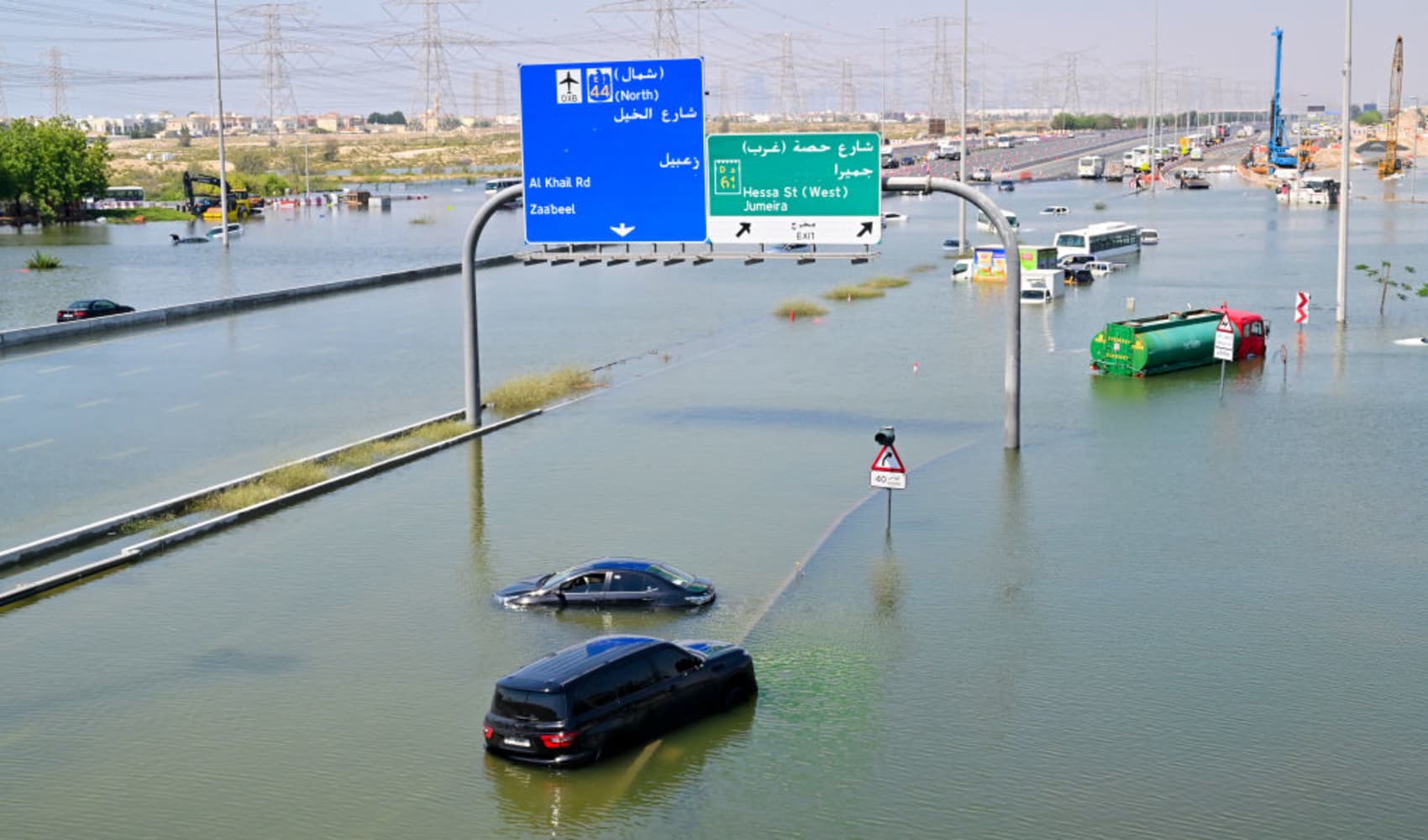
- Germany's new coalition government is yet to take power.
- But since it published its policy priorities on Wednesday, experts have been poring over its pledges to see what they mean for Germany's future.
- Many question marks have centered on Germany's future foreign and defense policy.
- Particularly given the current backdrop of tense relations between Russia and the rest of Europe.
Germany's new coalition government is yet to fully take power, but experts have been poring over its new pledges to see what they mean for Germany's future.
Many question marks have centered on Germany's foreign and defense policy, particularly given the current backdrop of tense relations between Russia and the rest of Europe.
The center-left Social Democratic Party are set to take charge of the Defense Ministry while the co-leader of the Green Party, Annalena Baerbock, is set to take over the foreign ministry.
Get Boston local news, weather forecasts, lifestyle and entertainment stories to your inbox. Sign up for NBC Boston’s newsletters.
Baerbock has previously said she would deal with authoritarian governments like those in China and Russia with "dialogue and toughness," there are some doubts over how tough the new left-leaning, ecologically-minded minister, and coalition, will be.
Germany has found itself in an awkward situation because while Russia has been accused of orchestrating a gas crisis with Europe, and of readying itself for a potential conflict with EU-ally Ukraine — both accusations that Russia denies — the final touches have also been made to the Nord Stream 2 gas pipeline project that will see Russian gas supplies sent to Germany.
On Wednesday, Germany's new coalition — made up of the Social Democrats and Greens and center-right Free Democrats — announced a coalition deal in which it signaled that Germany will remain committed to NATO and its nuclear-sharing agreement.
Money Report
Three NATO members — the U.S., France and the U.K. — have nuclear weapons. Germany does not have them but hosts some U.S. nuclear weapons that German fighter jets could deploy if necessary. Such weapons are seen as a deterrent against military aggression from countries like Russia.
NATO itself notes that the military alliance's "nuclear deterrence also relies on U.S. nuclear weapons deployed in Europe and supporting capabilities and infrastructure provided by Allies."
The German coalition appeared to commit to allowing those weapons to stay on German soil, saying, "as long as nuclear weapons play a role in NATO's strategic concept, Germany has an interest in participating in strategic discussions and planning processes," the document said Wednesday.
Germany has had a strained relationship with its NATO allies for a while, particularly the U.S., when it comes to defense spending. Berlin is slowly cranking up its defense spending in line with a 2014 NATO pledge that member nations should spend 2% of their gross domestic product on defense.
In 2021, Germany spent around $53 billion on defense, marking a 3% rise on the previous year, however the amount had still not reached the 2% guideline (it stood at 1.53% of GDP in 2021, according to NATO estimates).
Former President Donald Trump famously chided Germany several times over its defense spending record, accusing it of being "delinquent" and profiting from the presence of U.S. troops stationed in Germany.
Trump then announced last summer that he would withdraw almost 12,000 U.S. troops from Germany but the proposal was put on ice this year by President Joe Biden.
Daniela Schwarzer, executive director for Europe at Eurasia Open Society Foundations, said the new coalition was likely to continue to increase defense spending with or without pressure from the U.S.
"Defense spending has increased over time, and it's very important for the German debate to emphasize that it's not the U.S. president asking for that, but that the previous German government has taken that commitment," she told CNBC on Thursday, adding that "it is very important to remind the new government that this is an agreement that stands."
Given the positioning of the SPD and Greens on defense, with both appearing to favor more military cooperation at a European level — the SPD, for example, is in favor of a European army — Schwarzer expected defense spending to continue to rise.
"This is a coalition which has two left parties [the SPD and Greens] who are not the ones who would be foremost in the mind for defense spending. But what I think is going to happen is that they will increase Germany's defense spending not in big jumps but in gradual terms ... At the same time, with a Green [Party] foreign minister, it's also likely that Germany will invest in other areas of foreign policy, not only defense, such as humanitarian aid and civil crisis management," she noted.
"All in all I think we have the ingredients in place for Germany to take a stronger role within the EU but also internationally," she said.
For her part, the incoming Foreign Minister Annalena Baerbock indicated no intention to take a laissez-faire attitude to global geopolitics, stating on Wednesday the need for a "proactive" and communicative approach to Germany's foreign policy.
"We are living at a point in time, where the crises happening directly around us in Central Europe are getting more serious," she said at a news conference Wednesday after the coalition deal was announced.
"Look at the situation in Belarus, and the situation on the outer borders of Europe. Together we've all agreed to return to a more proactive European foreign policy, that rests on the strengths of diplomacy and dialogue, and on value and human rights-based co-operation."






